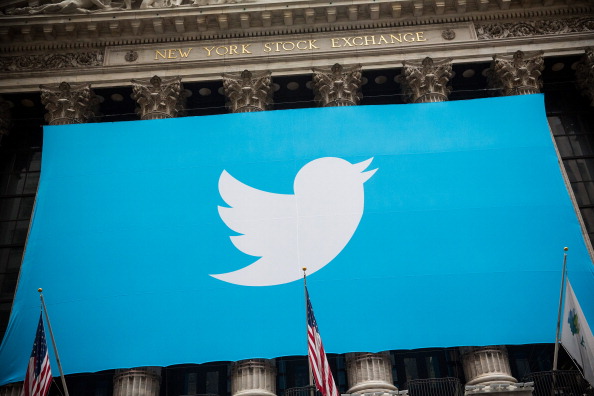Study: Russia may have used Twitter more than Facebook to sway 2016 election


A free daily email with the biggest news stories of the day – and the best features from TheWeek.com
You are now subscribed
Your newsletter sign-up was successful
Facebook has disclosed that during the 2016 presidential race, Russians used fake pages and ads to sow discord and influence the election, but there is evidence that Twitter may have been used even more extensively during the Russian campaign, The New York Times reports.
Researchers at the bipartisan Alliance for Securing Democracy have been tracking 600 Twitter accounts they believe are tied to the Russian government or at the very least spread Russian propaganda, and of the news stories these accounts shared and promoted last week, more than 25 percent "had a primary theme of anti-Americanism," the Times reports. "What we see over and over again is that a lot of the messaging isn't about politics, a specific politician, or political parties," Laura Rosenberger, director of the Alliance for Securing Democracy, said. "It's about creating societal division, identifying divisive issues, and fanning the flames."
For example, Twitter has suspended several accounts this week believed to be linked to Russia that pushed out messages both for and against football players kneeling during the national anthem, which was viewed as an attempt to divide Americans. On Thursday, Twitter employees will meet with staffers of the Senate and House intelligence committees as part of their investigations into Russian interference in the election, and a Senate aide told the Times that Twitter, Facebook, and Google have all been invited to testify at a Senate Intelligence Committee hearing on Nov. 1 regarding Russian meddling. Read more about the Russia-Twitter connection at The New York Times.
The Week
Escape your echo chamber. Get the facts behind the news, plus analysis from multiple perspectives.

Sign up for The Week's Free Newsletters
From our morning news briefing to a weekly Good News Newsletter, get the best of The Week delivered directly to your inbox.
From our morning news briefing to a weekly Good News Newsletter, get the best of The Week delivered directly to your inbox.
A free daily email with the biggest news stories of the day – and the best features from TheWeek.com
Catherine Garcia has worked as a senior writer at The Week since 2014. Her writing and reporting have appeared in Entertainment Weekly, The New York Times, Wirecutter, NBC News and "The Book of Jezebel," among others. She's a graduate of the University of Redlands and the Columbia University Graduate School of Journalism.
-
 How the FCC’s ‘equal time’ rule works
How the FCC’s ‘equal time’ rule worksIn the Spotlight The law is at the heart of the Colbert-CBS conflict
-
 What is the endgame in the DHS shutdown?
What is the endgame in the DHS shutdown?Today’s Big Question Democrats want to rein in ICE’s immigration crackdown
-
 ‘Poor time management isn’t just an inconvenience’
‘Poor time management isn’t just an inconvenience’Instant Opinion Opinion, comment and editorials of the day
-
 TikTok secures deal to remain in US
TikTok secures deal to remain in USSpeed Read ByteDance will form a US version of the popular video-sharing platform
-
 Unemployment rate ticks up amid fall job losses
Unemployment rate ticks up amid fall job lossesSpeed Read Data released by the Commerce Department indicates ‘one of the weakest American labor markets in years’
-
 US mints final penny after 232-year run
US mints final penny after 232-year runSpeed Read Production of the one-cent coin has ended
-
 Warner Bros. explores sale amid Paramount bids
Warner Bros. explores sale amid Paramount bidsSpeed Read The media giant, home to HBO and DC Studios, has received interest from multiple buying parties
-
 Gold tops $4K per ounce, signaling financial unease
Gold tops $4K per ounce, signaling financial uneaseSpeed Read Investors are worried about President Donald Trump’s trade war
-
 Electronic Arts to go private in record $55B deal
Electronic Arts to go private in record $55B dealspeed read The video game giant is behind ‘The Sims’ and ‘Madden NFL’
-
 New York court tosses Trump's $500M fraud fine
New York court tosses Trump's $500M fraud fineSpeed Read A divided appeals court threw out a hefty penalty against President Trump for fraudulently inflating his wealth
-
 Trump said to seek government stake in Intel
Trump said to seek government stake in IntelSpeed Read The president and Intel CEO Lip-Bu Tan reportedly discussed the proposal at a recent meeting
